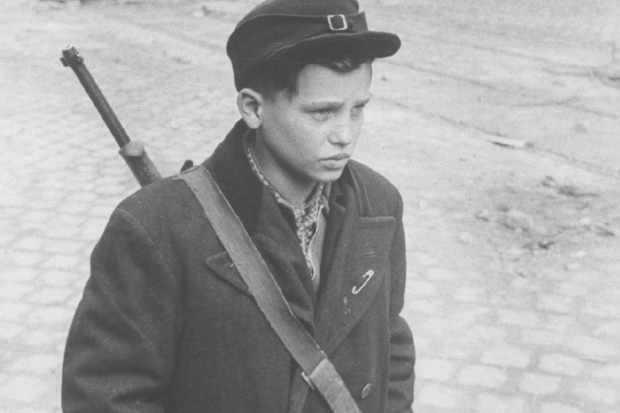The book of the year has long been a favoured genre in popular history, and is a commonplace today. While a book of hours endlessly recycles, the point of the book of the year is change, the more the better. There is an implied contest between years — you say 1917 is the most important; I trump you with 1940, or 1968 or 1979…. It is at once a rather silly genre, potentially nothing more than a dreary compendium of novelties, and one with distinct possibilities, as illustrated by both these books taking on 1956, one globally, one for Britain.
Simon Hall’s approach is to write the story of a year in global history, by moving through the Americas, Africa and Europe, taking up the story of particular events as they happen at the rate of over one a month. The theme is revolts and counter-revolts. Each chapter is nicely done, covering what within national histories are familiar events — from the Montgomery, Alabama, bus boycott to the beginnings of the Cuban revolution, mass repression in Algeria, revolt in Cyprus, as well as the ructions in Eastern Europe following de-Stalinisation, and more.
In this account 1956 is certainly an interesting year, but the case is not made strongly enough that this was a decisive year for the future. Indeed the book remains a set of national stories, richly evoked and, wonderfully juxtaposed, rather than an interconnected global history.
As the book more than once suggests, to its credit, there are big global stories to be told. Much of this book is about the revolt of subject racial majorities against white rule, in Alabama, South Africa, Algeria, Cuba, and even indeed in Egypt (where white men operated the Suez Canal). Another recurring theme is the repressive measures of white powers, including the British-French-Israeli attack on Egypt, and the common invocation of anti-communism, in what was close to being called a ‘war on terror’ in many, many places.
It is a striking irony, not sufficiently brought out here, that while white imperialists in Africa were increasing repression, the Soviet empire was de-escalating it. De-Stalinisation preceded the denunciation of Stalin by Khrushchev, and it led to serious problems for Soviet power especially in Poland and Hungary. Khrushchev stopped a prepared Red Army from crushing Poland, but in Hungary the reforming communist government overstepped the mark, and a bloody invasion resulted, though it too nearly did not happen. But control re-established, the Soviet empire remained much more liberal than under Stalin. The Soviet empire lasted a lot longer than the white empires in Africa, and was maintained at a fraction of the cost in blood.
Beckett and Russell illustrate the second way out of timeline banality. Looking at newspapers shows not that journalists have written the first draft of what comes to be seen as history, but something much richer. What we take to have been the past weighs much more heavily than we expect. The old and the merely novel crowd out later historical significance. Thus it is absurd to think of 1956 only as the year of Look Back in Anger when Noël Coward and Terence Rattigan were still going strong. 1956 isn’t just the year of Lonnie Donegan, Tommy Steele, Shirley Bassey or Elvis Presley, but of artistes history does not remember, though it needs to understand the past and the present.
1956 was also the year when the British elite displayed a swaggering insolence towards foreigners we too easily and wrongly put much further in the past. When the Soviet leaders Bulganin and Khrushchev visited Britain, their cruiser was spied on without proper authorisation by a bronchitic superannuated navy diver; a British interpreter was drunk and rude, and the Labour politician George Brown abused them with unseemly ignorance of history. Astonishingly Soviet Man showed much more tact, restraint and good humour than his imperious hosts.
As far as Suez is concerned, the melancholy truth is that the British cabinet and armed forces leadership went out of their way to demonstrate that the uppity Egyptians didn’t like it up ’em, and themselves ended up as vassals of a greater power and left Nasser stronger than ever before.
It wasn’t just the British establishment that lost legitimacy in 1956; so too did the British Communist party. Dupes of a Stalin exposed by the Soviet party, it was unable to tell even secret truths to itself: the reports from Budapest describing Hungarians being gunned down by the Red Army from the Daily Worker correspondent were so obviously true as well as damning that they were kept even from other reporters on the paper. The party suffered large defections, was never to be as significant a force as it had been; and it was for the first time dependent on Moscow gold.
The British establishment could not tell the truth either. That was, as spelled out here, that the empire was sold out not to Europe, but to the USA. That remains an untouchable theme for most conservatives (and Ukip, of course) except for the most reckless, like Enoch Powell. Little wonder then that in the ranks nostalgia for the 1950s was a yearning not for national power, but for order, discipline, short-back-and-sides, the gallows and, perhaps, for the persecution of homosexuals.






Comments